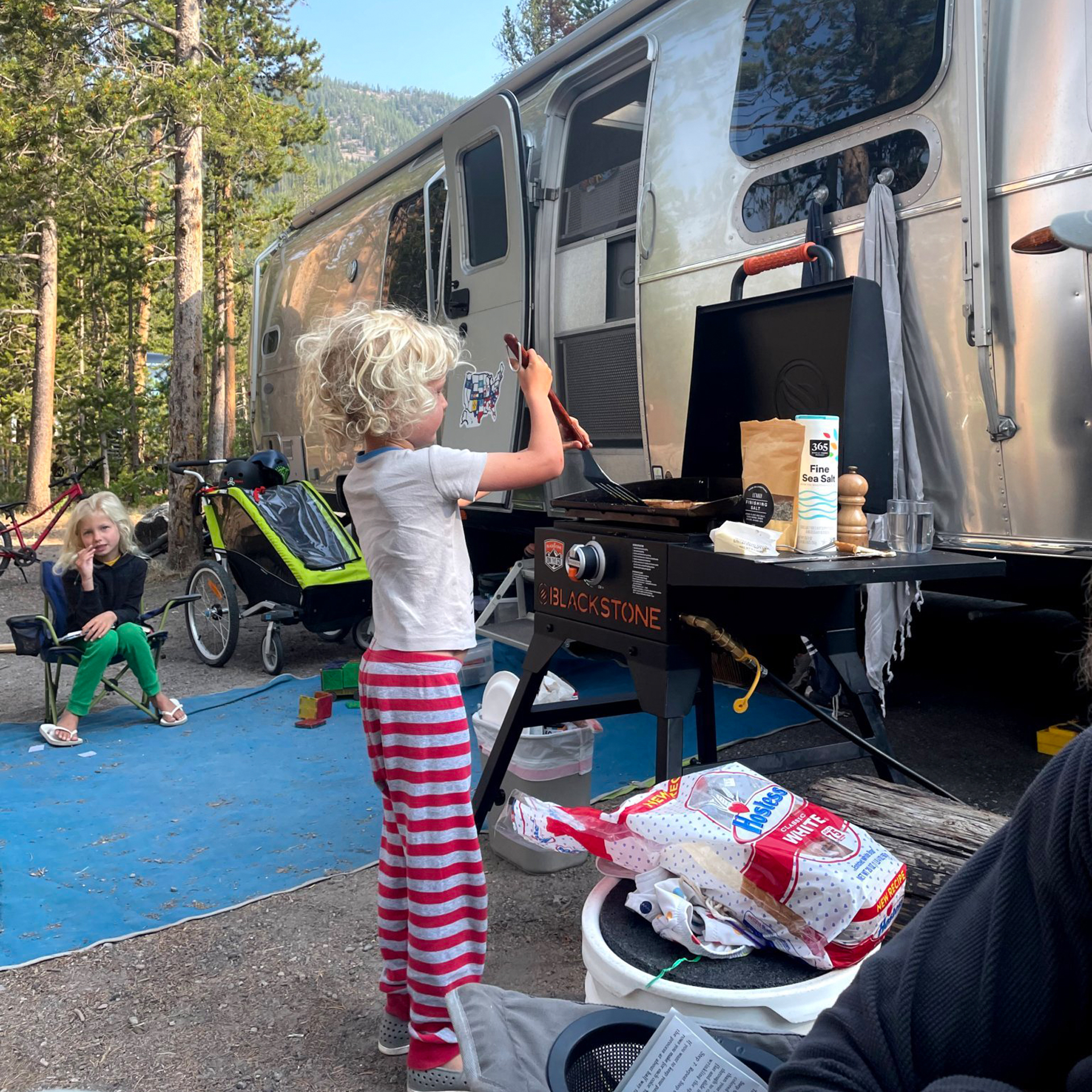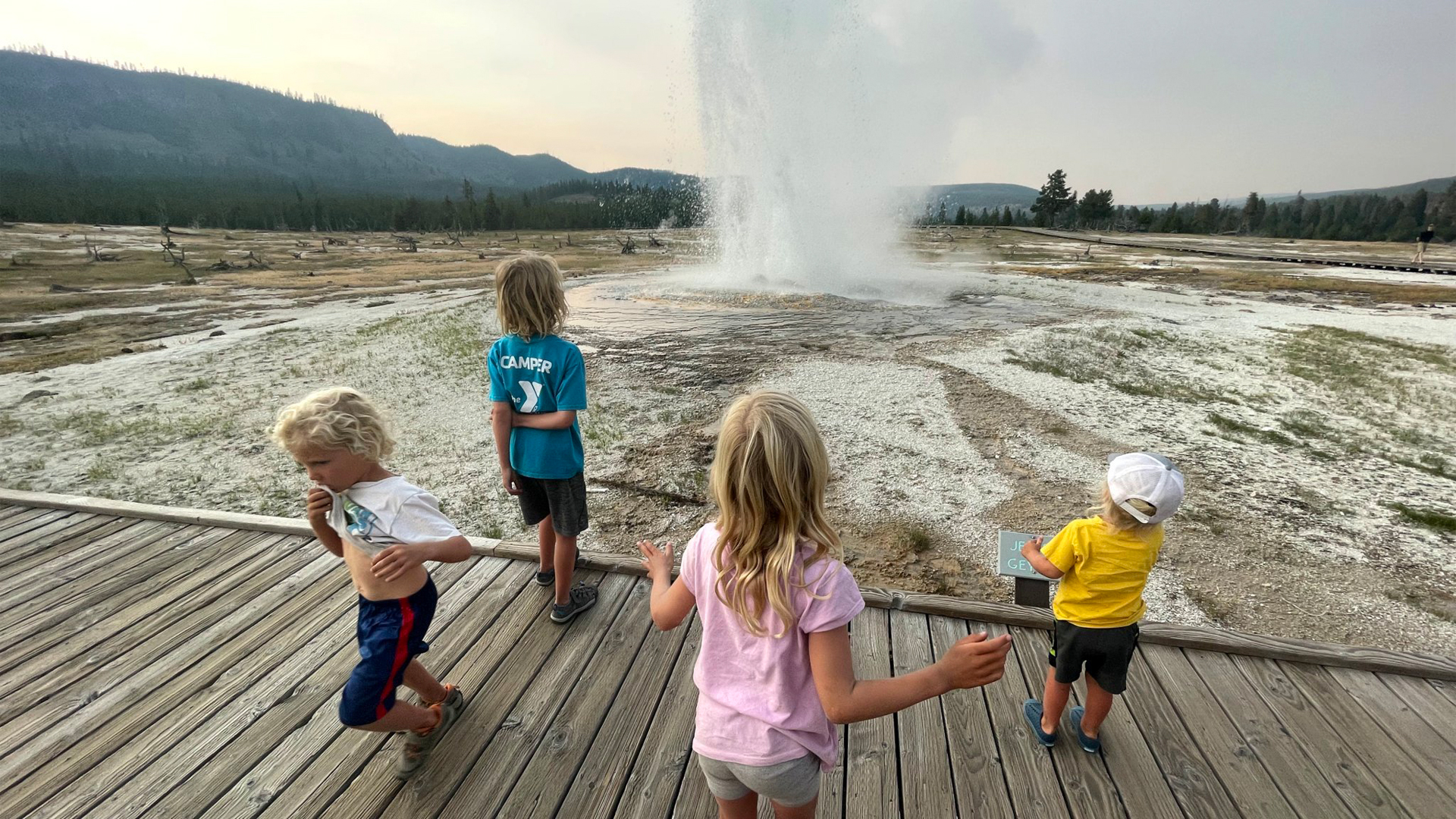Molly Moore, her husband, Joe, and their four young kids have been traveling in their 2019 30’ Airstream since July 2020, attempting to let go, spend time in wild places, and instill a strong foundation of Leaving No Trace, while picking up the trail of their LEGO blocks left at campsites across the entire country. She tells her family’s story at their blog, The Moore Air, which recounts their adventures and discoveries from remote parks to big cities, all while growing up and slowing down in tight quarters…together. You can also catch them on Instagram @the_moore_air. Read earlier installments here.
“Mom, what are we having for dinner?”
A simple question to which so much attention must be given. It would probably be best illustrated through an elaborate decision tree matrix. Assuming we have propane and water in their respective tanks, I would start by asking myself if we are hooked up to electricity and if not, how long until we would be and how is our solar power charge, noting if we are parked under trees or in a cloud-covered part of the country or during a particularly cloudy season and what time of day it is to know if there’s time for charging before the sun sets. My mind then wanders to water and if we're hooked up to it, then weaving through a similar series of water-related questions. Then to the gray tank that catches all this water we will or will not use, a similar series of questions. And to ensure we are considering all factors, is there a dishwashing station and is the water warm, to which the answer was generally, “No, in fact it’s close to ice.”
All these questions are really getting me to the penultimate question to determine tonight’s dinner: “How realistic is washing dishes and, therefore, how many dishes can I afford to use as I determine the menu?” Knowing that answer directs me further: Do we build a campfire and cook on cast iron? Do we use the propane flat-top grill? Is the microwave available? Do we use the oven or the stove inside the Airstream? Regular plate or paper plates? Is a side salad worth the extra bowl needed to mix it?
“Kids, we are having weeknight jambalaya (again),” which is not only a reliable crowd-pleaser, but a dish that involves few dishes to prepare, can be made on the outdoor flat-top grill, and has (canned) vegetables in it implying there was no need for a side salad.
Simple, right?
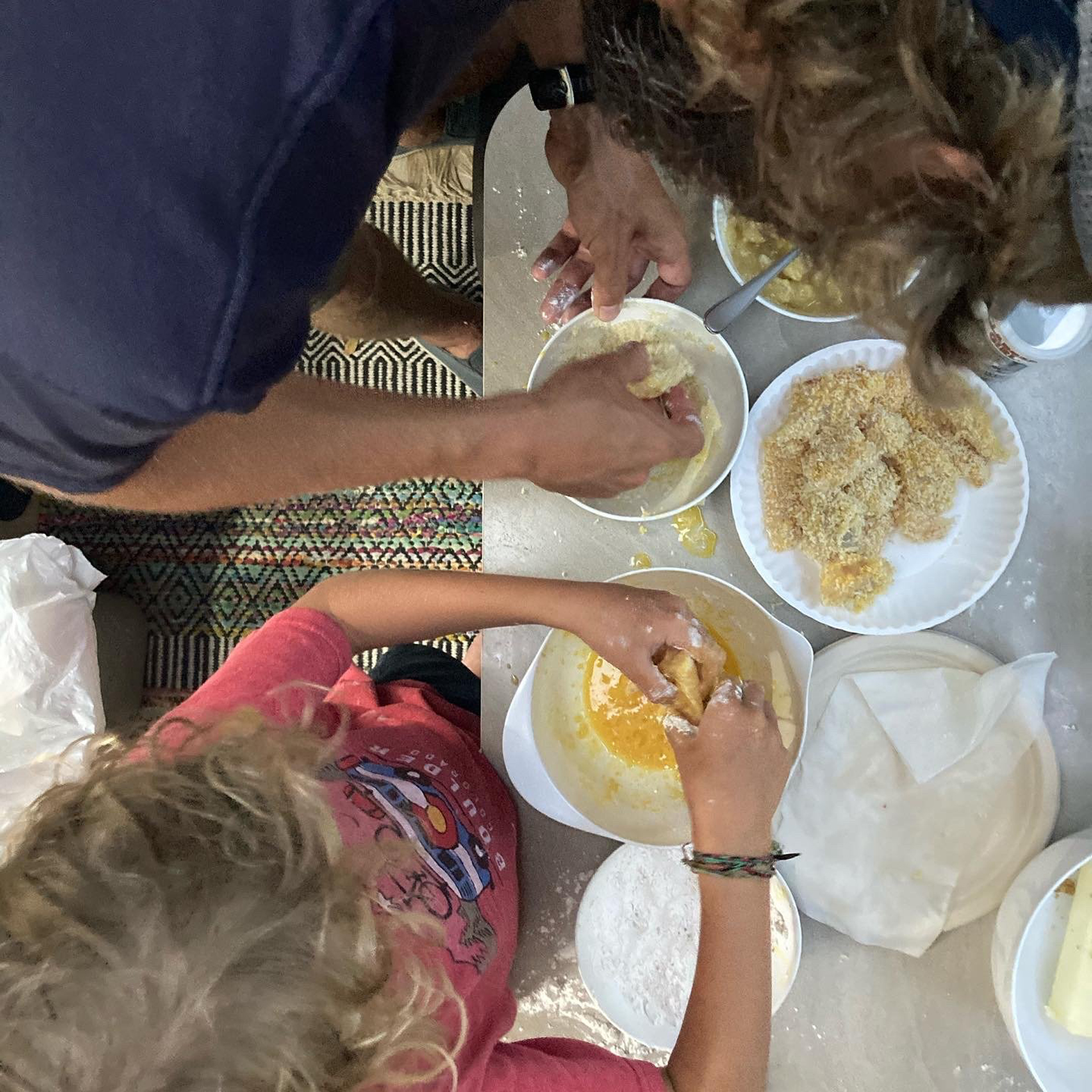
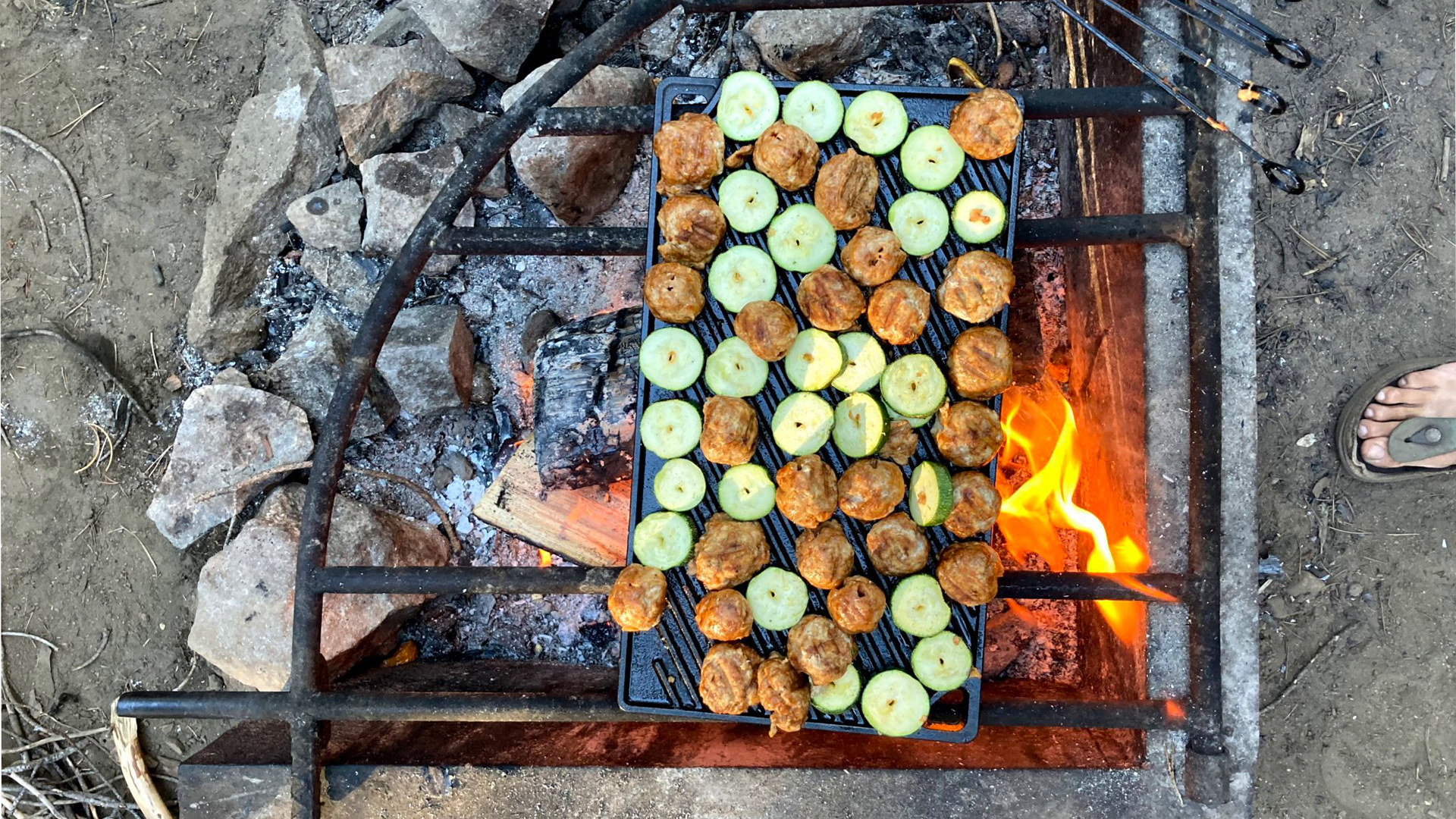
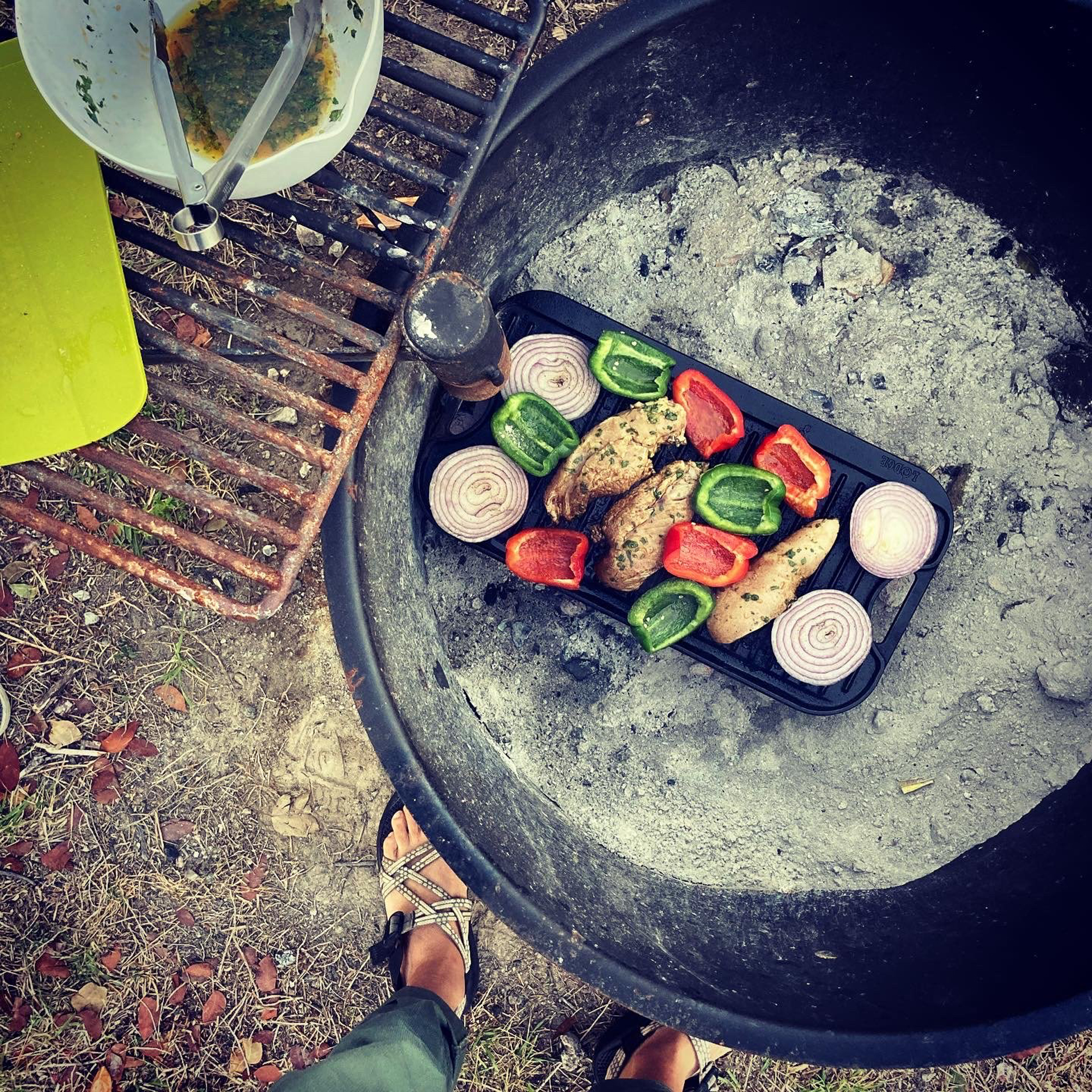
I have four kids. Elaborate decision-making matrices to determine dinner are not new to me. Before we set off on our full-time adventure, dinner plans involved calculating prep time against after-school activities, identifying ingredients that were healthy, palatable, and welcomed by each of the four kids, finding time to go to the grocery store, and deciding whether to double the recipe, allowing for lunchbox fillers and tomorrow’s leftover dinner, ever seeking efficiencies in the quest to operate.
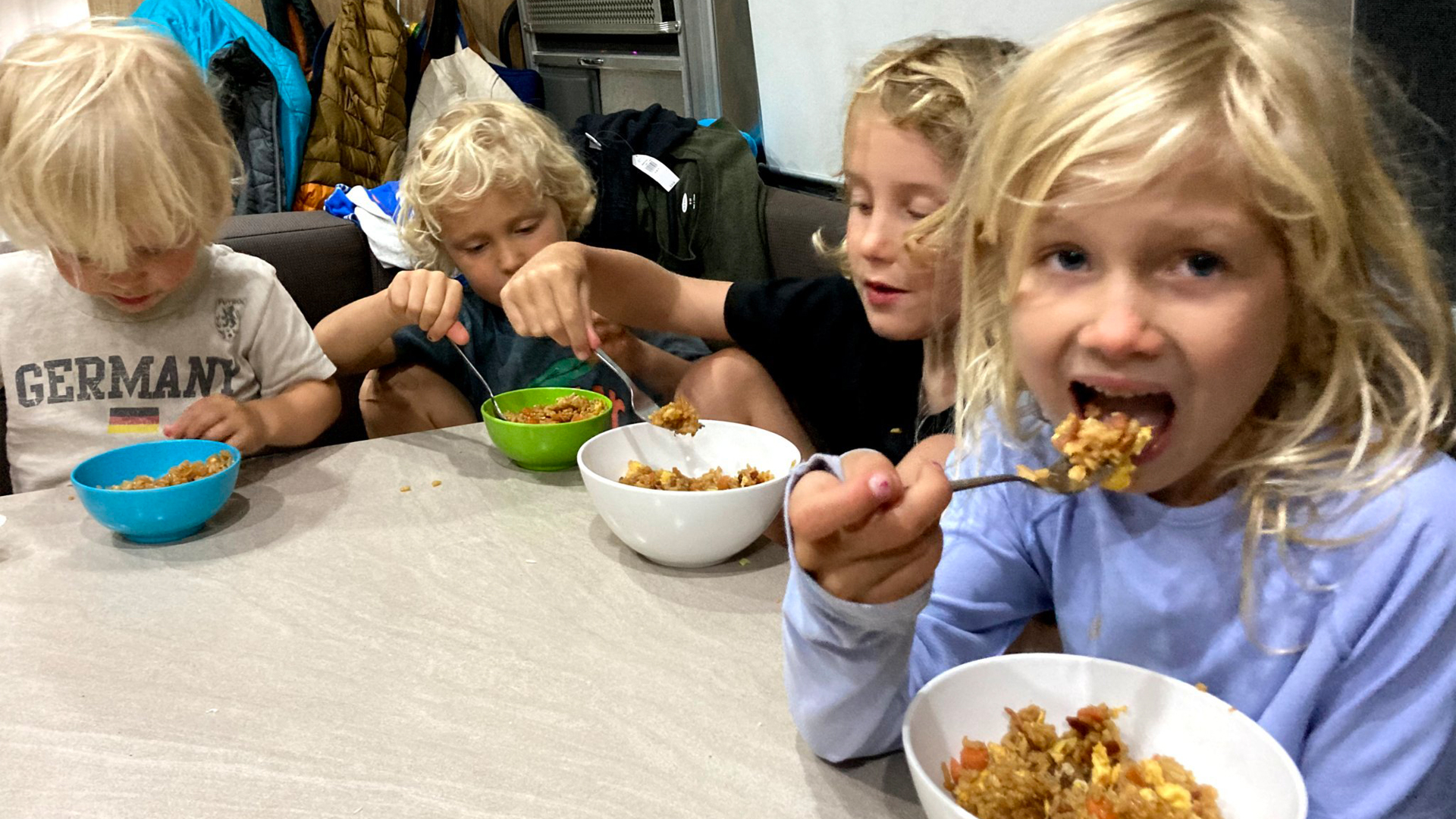
When we first hit the road, I considered all these questions somewhat reactively. Too often I had made a delicious meal only to realize we didn’t have enough room in the gray tank to wash the dishes or enough electricity to power the water pump. But eventually, considering these things became second nature. I’d do my grocery shopping and consider the extent to which we were hooked up or roughing it. I’d have a rhythm of baked goods early in the week, oatmeal mid-week, and dry cereals by the end of the week. And typically, having some buffer of either electric, water, or sewer hook-up, the logistics of meal-planning did not always consume my attention.
But now – anticipating two weeks of dry camping in Yellowstone National Park – I faced my biggest challenge yet: preparing meals and shopping for groceries to cover our entire two weeks of no electrical hookup, no water hookup, no sewer hookup, and being far enough away from a town to assume there would be no grocery runs other than the occasional over-priced loaf of white bread that could be found in the campground’s store.
But this effort, this complicated planning, this preparation and stocking would eventually yield to simplicity. And this simplicity has become the secret sauce of our entire time on the road, consistently life-giving to our family. We had boondocked and dry camped (Black Canyon, NM, Oregon Coast, Lizard Head Pass, CO, the Tetons, and Buena Vista, CO to name a few) and knew that the lack of amenities offered unique experiences compared to when electricity, air conditioning, and running water made life a bit easier:
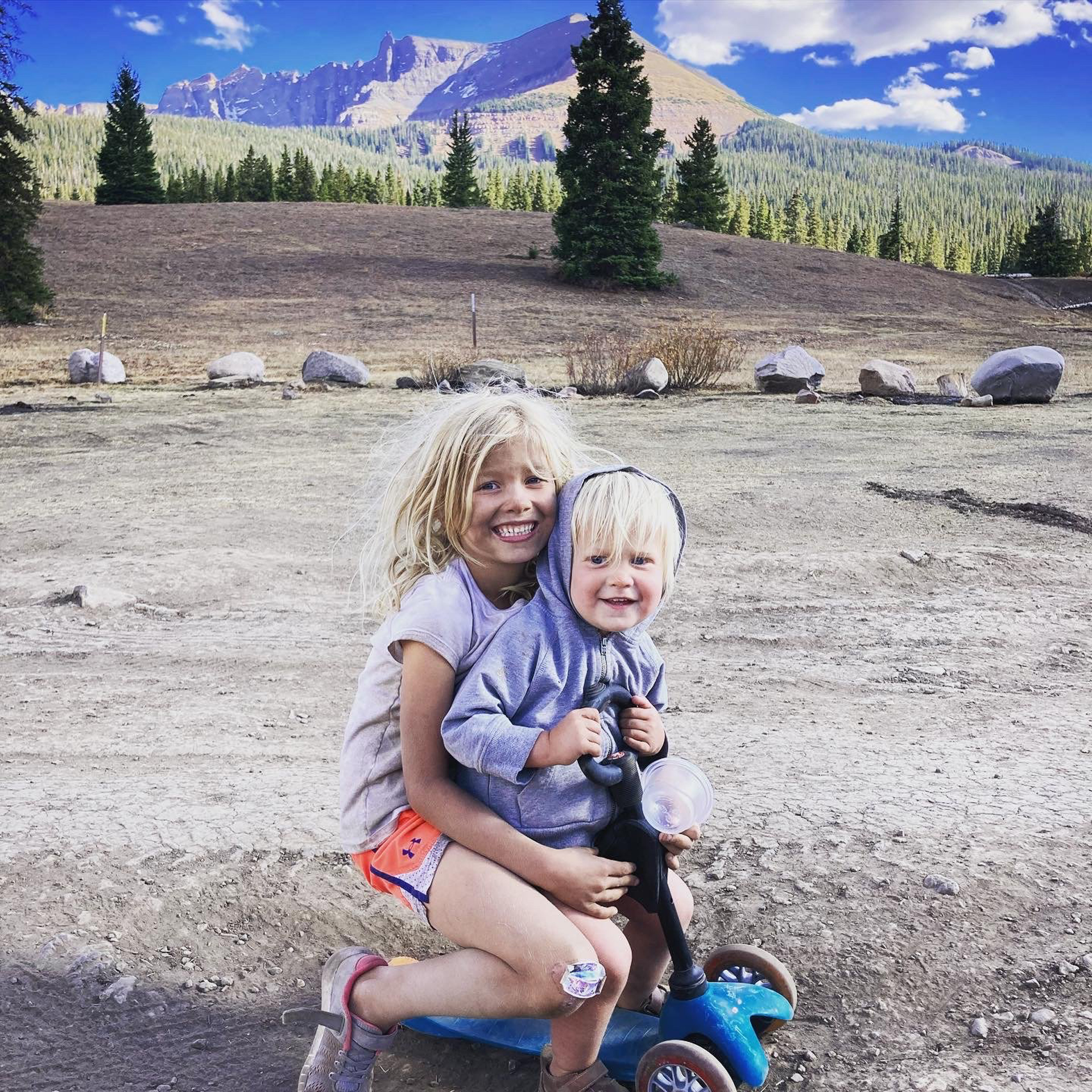
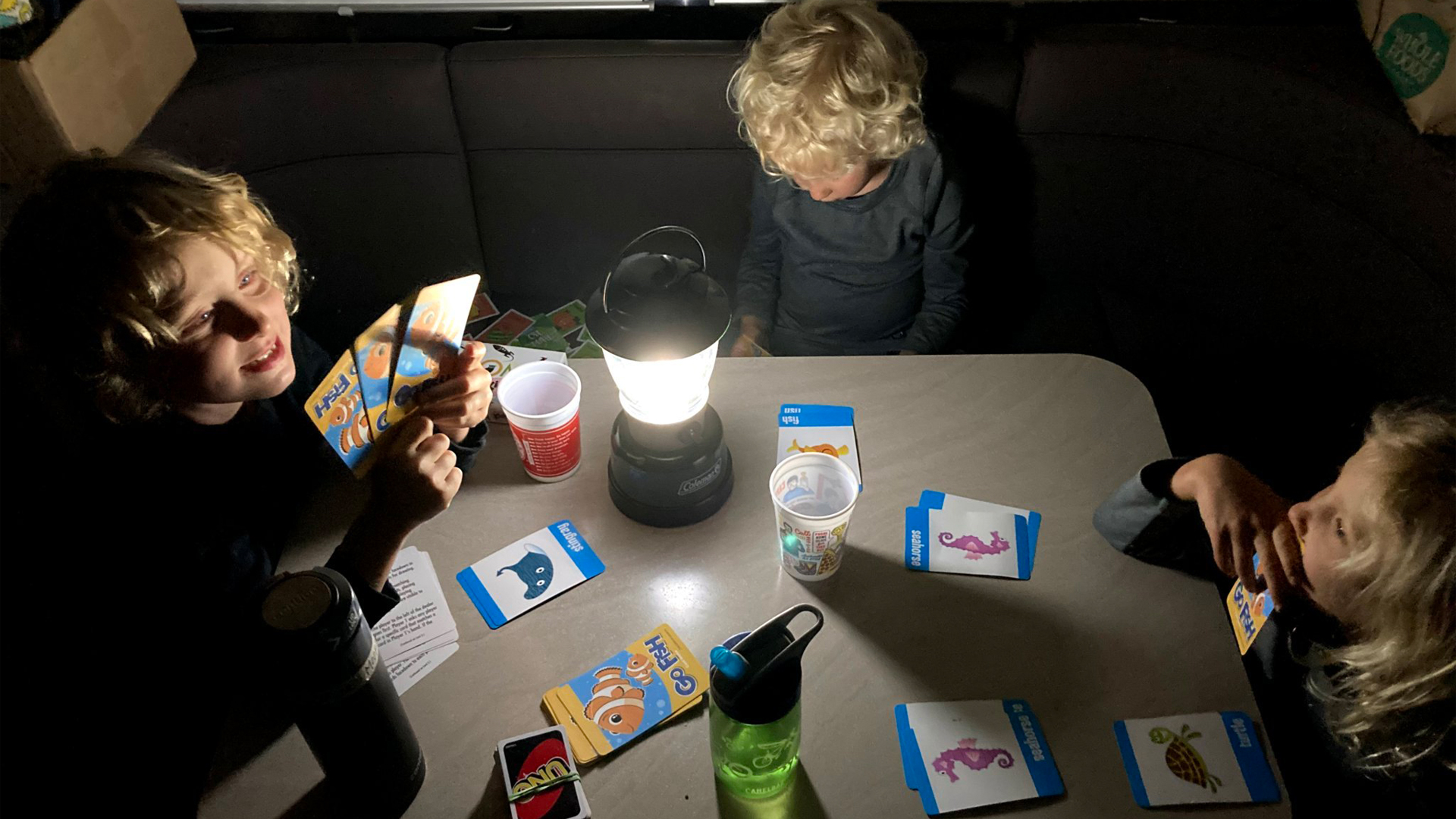
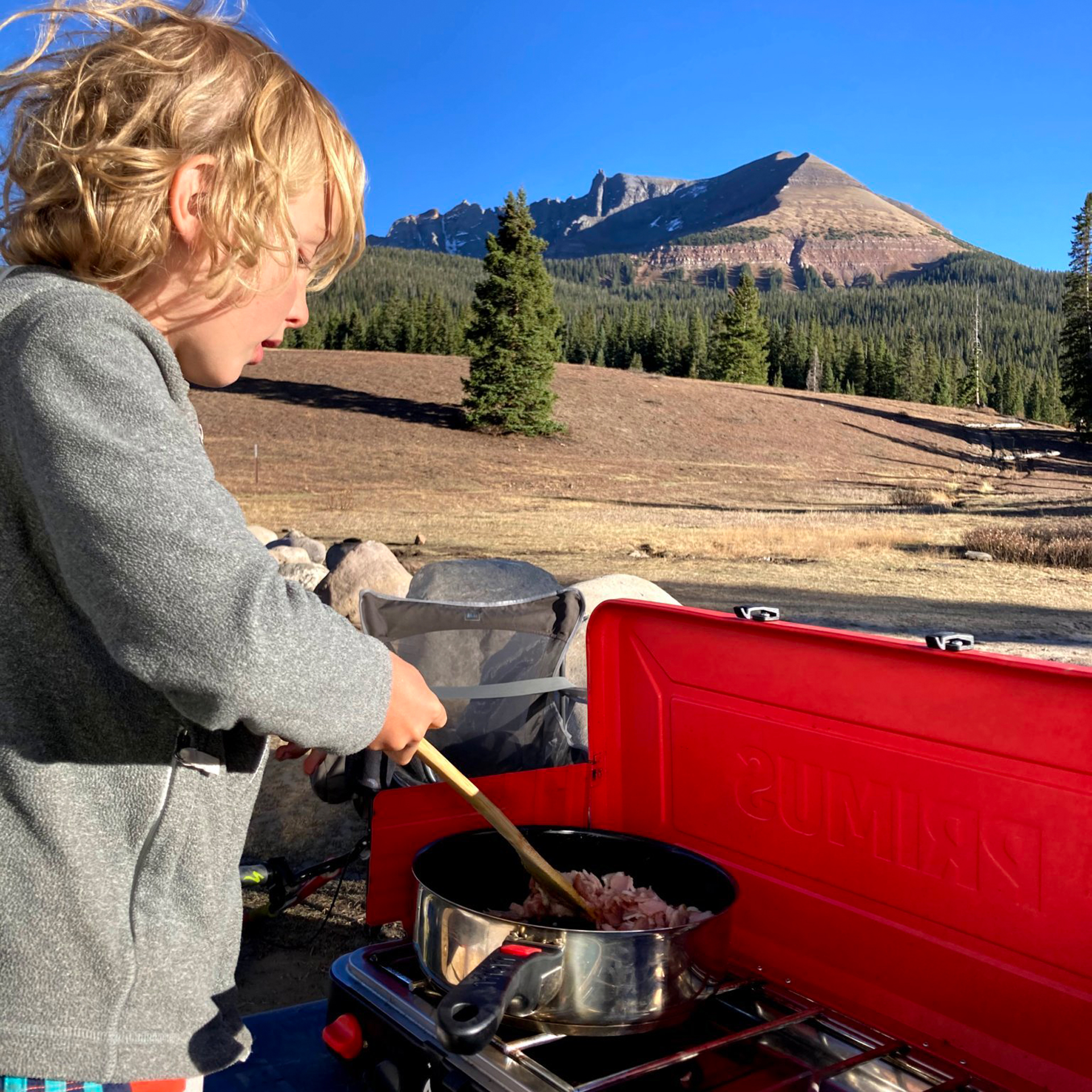
We are deeper in nature. Boondocking let us access places that electrical wires and plumbing haven’t reached. We're off the beaten path, more secluded, accessing wilderness that has seen fewer human interactions.
We are less distracted by our devices. We begin to detox from the constant pursuit of dopamine and the addiction to stimuli that our devices facilitated. Both kids and adults face stillness and slowness and begin to get more resourceful about how to use their time. We invent things, search for things, play make-believe, participate in meal prep, find ways to express, and do things like stare or think – things that feel novel in our otherwise fast-paced lives.
We are more present. There is no automatic coffee maker that has coffee prepared for me every morning. I have to wake up, boil water, pour the water over ground beans, and wait. And I can’t do much else in the meantime. I am focused on one task at a time. I cannot multi-task because the task at hand demands all of me. There are no shortcuts. I wash dishes by hand with all my attention focused. This, in turn, becomes a cathartic experience – likely because it’s so rare to actually find yourself focused on one task.
We are more secluded. Although we love our time with people, these seasons of being only with each other force our relationships to develop, heal, or strengthen. We read together, play board games together, take turns making meals, we fight, and we make up. We share the experience. We rely on one another for companionship, audience, or co-creation, instead of busy campsites, friends, and others to fill these needs.
We discover more. These locations often come with tricky roads to navigate and GPS coordinates that aren’t always accurate. They offer some mystery as they can be unreliable. Will there be a spot for us? Will we get stuck? Can we make it up the hill? And not just that, but since we aren’t just using campground trails that have been bushwhacked or even paved, we are blazing our own trails, accessing wide open spaces, and taking a more meandering, explorative approach to our journey.
So yes, there are logistical gymnastics required to take our family of six off the grid for two weeks. But the complicated planning for our Yellowstone trip led to two full weeks of a simplicity that is otherwise near impossible to duplicate. We shared two weeks of going to sleep and waking with the sun; we shared two weeks of being free to be dirty (do you know how freeing it is to remove the responsibility of keeping four kids clean?); we shared two weeks of starting a slow, meandering dinner prep at 5:00 while the kids designed a pika trap out of an old shoe box (no pikas were hurt); we shared two weeks of getting creative and making the best of what we had; we spent two weeks with realistic expectations of what we could accomplish in a day; we spent two weeks fully immersed in the truly dramatic nature that surrounded us.
Somehow, solving the high-maintenance matrices of meal-planning and resource-using opened the door for our family to experience profound simplicity.
